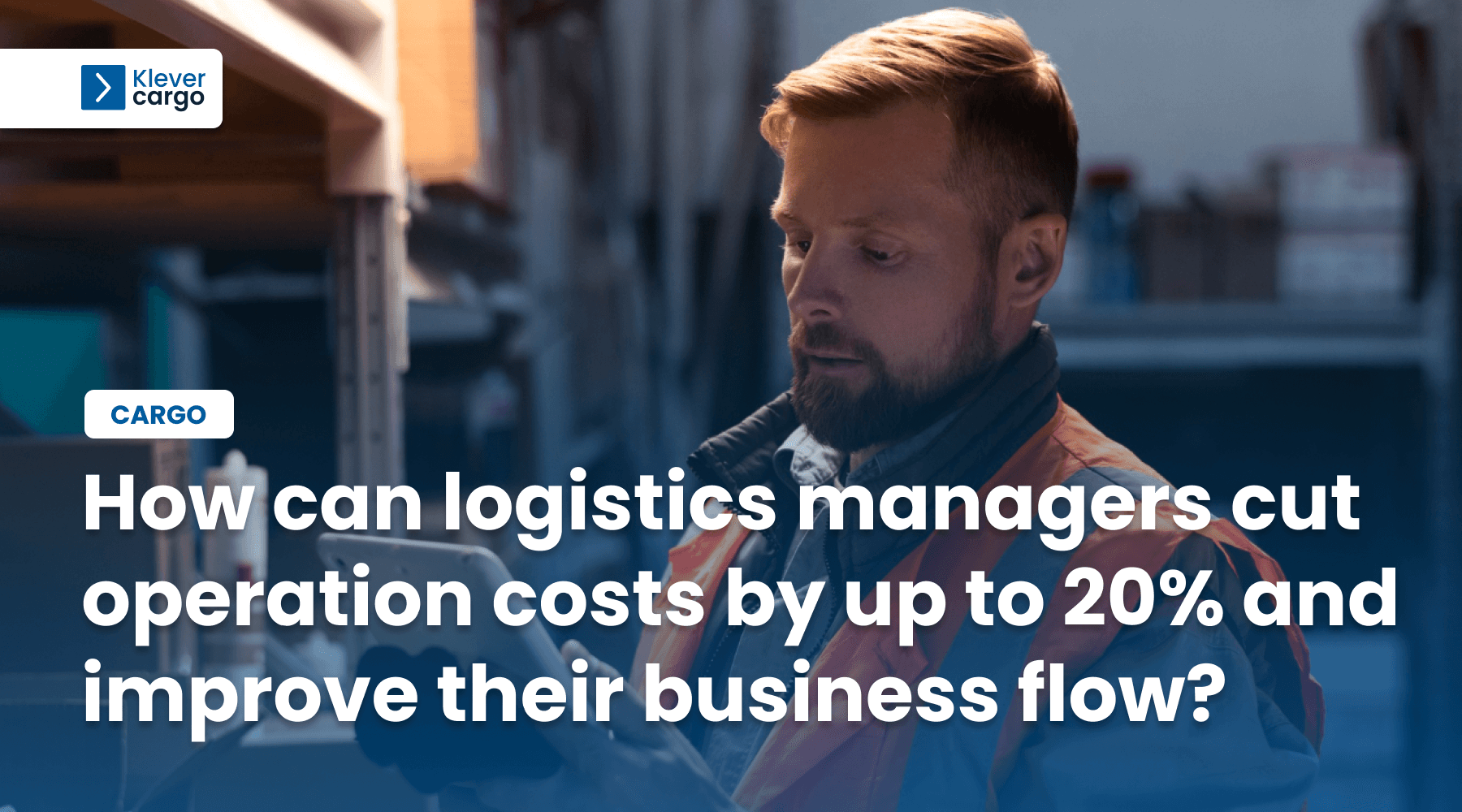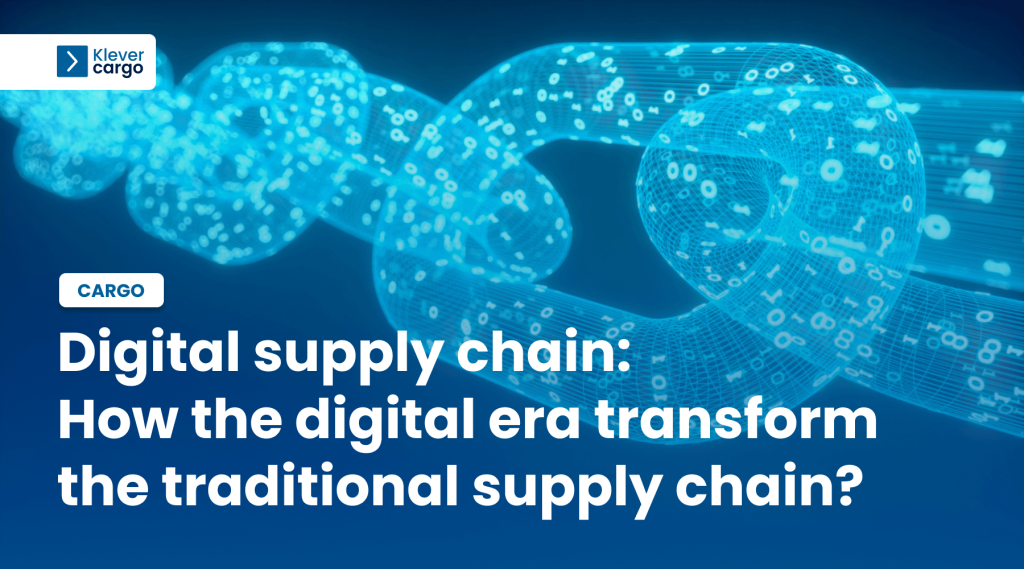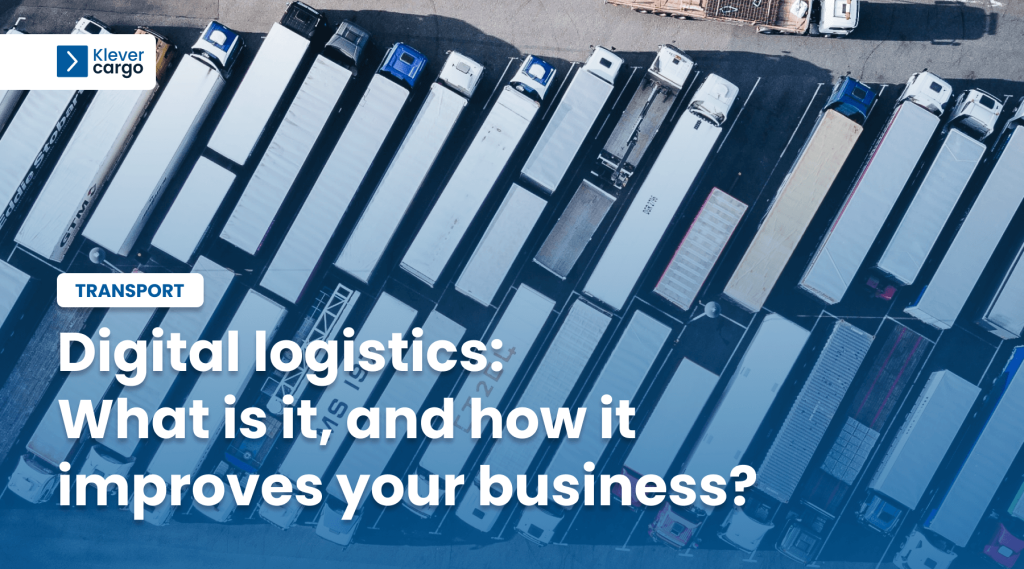Supply chain management is a vital element of successful business operations. It’s the backbone that ensures products move efficiently from origin to destination. Logistics managers who oversee this movement of goods are at the heart of this system.
Their role includes various tasks and responsibilities that optimise the business flow. Hence, we’ll first dive into the topic of what logistics managers do and we’ll follow that up with the responsibilities they have. Then, we’ll explore ways they can cut costs and improve business flow.
What is logistics management?
Logistics management is a process in transportation that ensures that everything operates properly. It comes into play when moving goods from point A to point B.
Here, it’s important to carefully plan every step ahead in order to achieve efficient flow and safe storage of goods. This makes logistics management one of the most crucial parts of the supply chain.
Here’s how these processes look in practice:
1. Planning

The logistics manager calculates the best ways to transport goods. To do so, they consider cost, time, and safety factors.
2. Implementation
Once a plan is in place, logistics managers execute it. They will monitor everything from transportation to storage and distribution.
3. Control
Control involves monitoring and making changes if necessary so the logistics processes stay efficient and cost-effective.
Effective management is the key to success in the world of logistics. With it, companies will ensure their products reach their destination on time.
What is the role of logistics managers?
Even though logistics managers are in charge of planning for efficient transport of goods, their role is much more complex. At the same time, they have to oversee the entire logistics and supply chain operation, in order to minimize risks and ensure cost-effectiveness.
A logistics manager is a crucial link between all participants in the supply chain. Still, they are not just managers – they are masterminds. By coming up with various strategies and searching for the best solution, they can save a lot of money and make the business more competitive.
Negotiation and communication skills must be their primary qualities. They must handle relationships with suppliers, carriers, and other participants, negotiate deals, and ensure everyone does what they promised. When any issues arise, logistics managers find solutions to solve them quickly.
Responsibilities of logistics managers

Logistics managers have numerous responsibilities, including:
- Strategic planning
- Resource management
- Supplier and carrier relations
- Inventory management
- Cost control
- Risk management
- Technology integration
- Optimizing routes
- Compliance and regulations
- Continuous improvement
- Customer satisfaction
The challenges faced by logistics managers
In logistics management, there are several obstacles that companies need to overcome. These challenges determine how smoothly things run and how much money they spend. Hence, we’ll look into the common problems that logistics managers face. We’ll also examine how solutions like KleverCargo help them tackle these issues.
1. Transportation challenges
Two major transportation-related challenges have been causing headaches for logistics managers. Those are the rising costs of fuel and a shortage of available drivers.
-
Rising fuel costs

Rising fuel costs affect everyone who drives a vehicle. It especially affects transportation companies as they need it in much higher volumes. The more they spend on fuel, the higher the cost of moving products from one place to another. Pollution is another issue, as higher fuel costs can affect the environment.
-
Shortage of drivers
The truck driver shortage trend started roughly 15 years ago. Fewer drivers mean it’s harder to get products on the move.
Although these obstacles cause issues for freight companies, KleverCargo is a practical solution. We have built a network of trusted carriers ready to assist you. Our carriers undergo detailed checks and verifications, ensuring their reliability.
Additionally, we offer a user rating and review system. This system lets you see what other users think about our carriers which makes it easier to make informed decisions.
For example, once you find a transport request you are interested in, you can check out its credibility score in the top right corner:
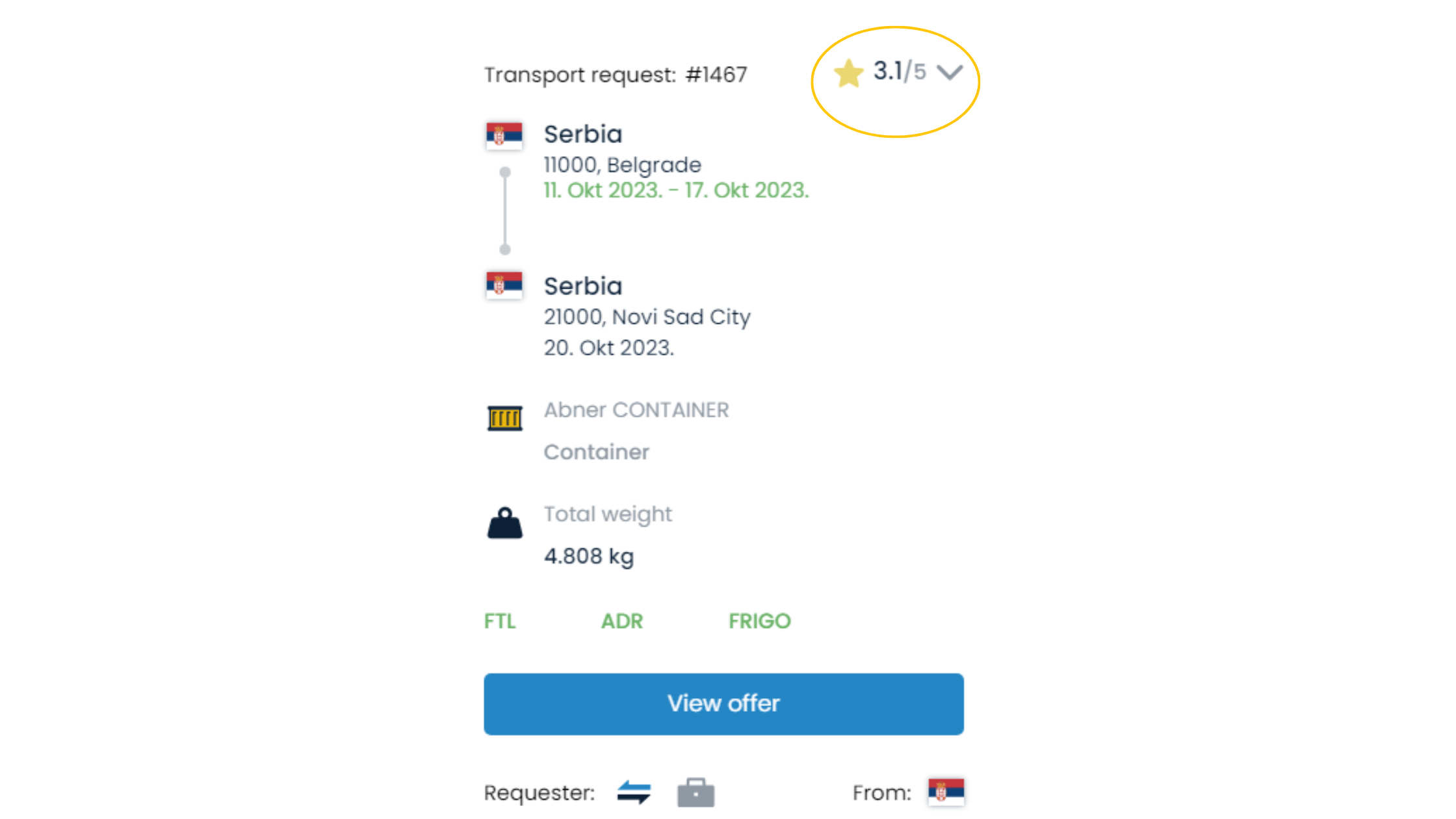
Then, you can click on it to expand their rating history. You will get a complete overview of that particular company’s ratings.
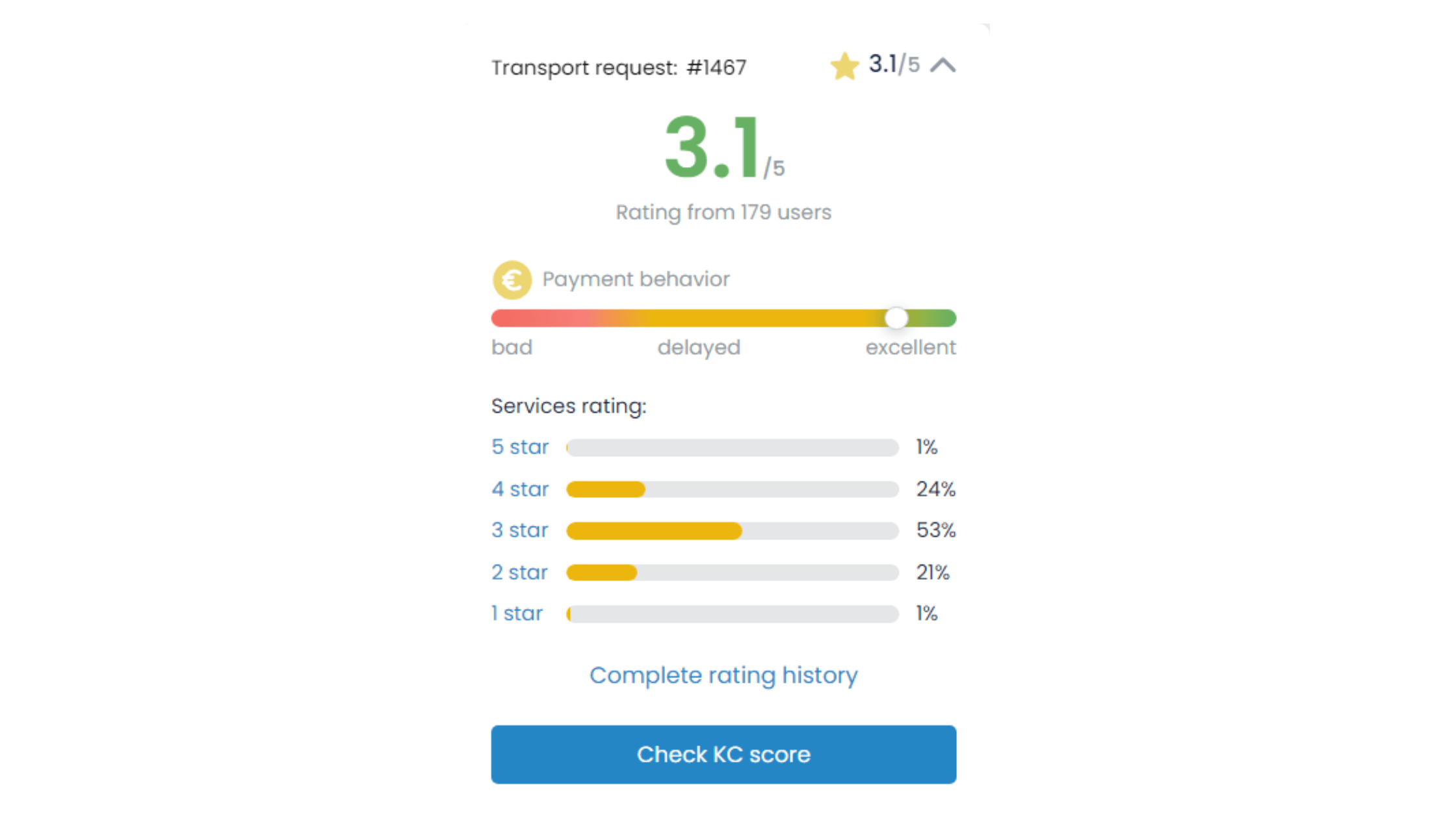
In times of driver shortages, having a network of trusted carriers ensures goods keep moving smoothly.
2. Technology integration and data management
Many logistics platforms and digital solutions can be complex. They require a lot of time and effort to connect with existing systems which can lead to delays and problems in operations.
Also, the volume of data in logistics operations can be overwhelming. In order to make appropriate decisions, logistics managers must go through mountains of information, which is a time-consuming process and can lead to errors.
Additionally, communicating with various stakeholders often requires different communication channels, which further complicates the process and may cause issues and miscommunication.
However, KleverCargo offers a simple integration process. Its user-friendly design ensures that logistics managers can quickly adapt to the platform. And since it is simple to learn, there won’t be any mistakes or disruptions.
The KleverCargo platform simplifies data management by presenting information clearly and understandably. Unlike certain platforms that may offer excessive data, KleverCargo’s interface prioritizes essential information and thereby helps logistics managers make faster and more accurate decisions.
Finally, KleverCargo offers smoother communication between stakeholders through a unified platform. Some systems require multiple interfaces. KleverCargo, on the other hand, provides a single point of contact that enables efficient collaboration among all parties involved.
3. Paperwork and regulatory concerns

Logistics operations involve a large amount of paperwork and regulatory requirements. To comply with all of the rules and regulations, logistics managers must handle various documents like:
- shipping manifests;
- customs declarations;
- permits;
- compliance certificates.
Managing and organizing these documents can be a challenging task. Non-compliance can lead to fines and reputational damage.
Hence, carriers and partners must meet regulatory requirements. Logistics managers must invest time and resources for verification.
However, with KleverCargo you can streamline the handling of paperwork and regulatory concerns.
All required documentation can be conveniently stored and accessed on the KleverCargo platform. This reduces the risk of lost or misplaced documents and simplifies record-keeping.
KleverCargo’s network exclusively includes carriers undergoing rigorous verification to meet all regulatory requirements. This eliminates the need for logistics managers to conduct individual verifications. With that, they can save plenty of time and resources.
4. Budget planning

Budget planning is a critical task for logistics managers. It directly affects how much money their operations use and how well things run. They must consider factors like fuel costs increasing and transportation rates shifting.
Balancing them while trying to save money can be challenging, which is why budget planning is such an important part of their role.
However, implementing KleverCargo can lead to cost reductions of up to 20%. By utilizing the platform, they can spend less money on their logistics work and make their operations more cost-effective.
KleverCargo allows logistics managers to select the most suitable transportation service prices. That’s possible due to a transparent bidding process which helps them make informed choices without intermediaries who often charge additional fees. Here’s what it looks like:
1. Transport request: Logistics managers can use our platform to create transport requests, specifying shipment details such as origin, destination, cargo type, and delivery preference.

2. Competitive bidding: Transporters on our platform see your request and compete to win your business by providing their prices. This competitive environment ensures that you have multiple options to choose from.

3. Freedom to choose: In order to get the best offer, you can review and compare the bids from different transporters. Take into consideration price, delivery time and other important factors and choose the most suitable offer for you.
 One of the biggest perks of KleverCargo is its direct price selection and cost savings. With them, logistics managers can achieve effective budget planning.
One of the biggest perks of KleverCargo is its direct price selection and cost savings. With them, logistics managers can achieve effective budget planning.
In summary

The role of a logistics manager can be complicated at times. Still, their contribution is crucial to the supply chain. With their careful planning and organization, they are the key link in making things run smoothly.
Facing these challenges and coming up with creative and efficient solutions, can be easy with the KleverCargo platform. Not only does it keep all documentation in a single place and save costs, but also simplifies the duties of a logistics manager. Join KleverCargo today and experience the benefits firsthand.
